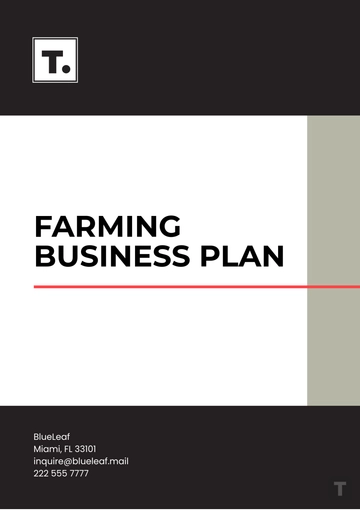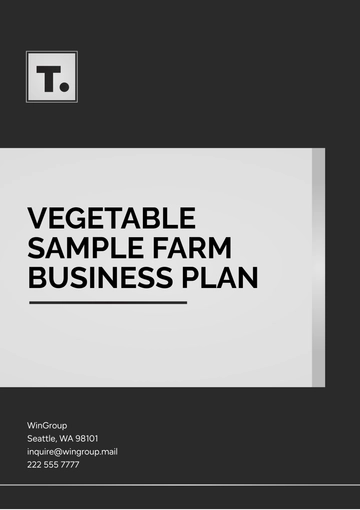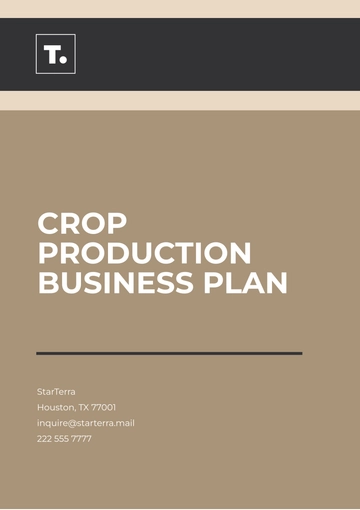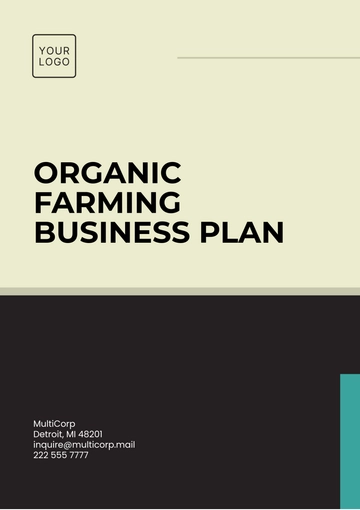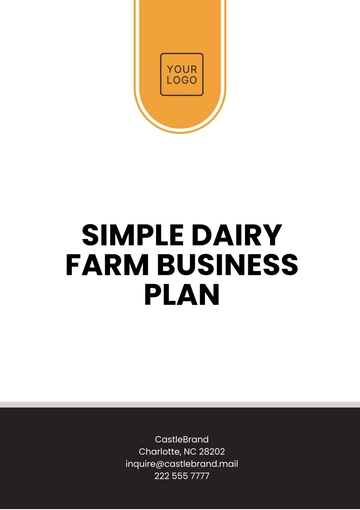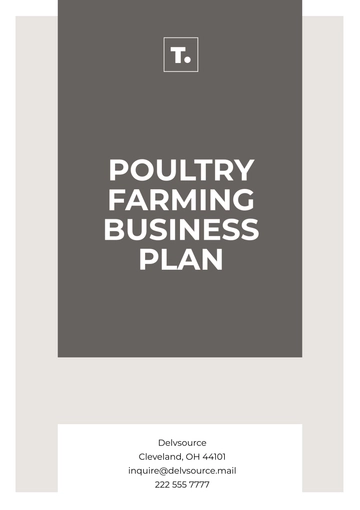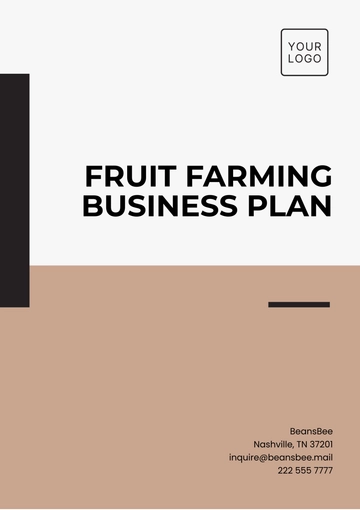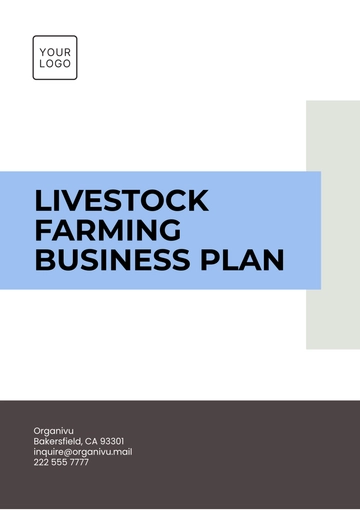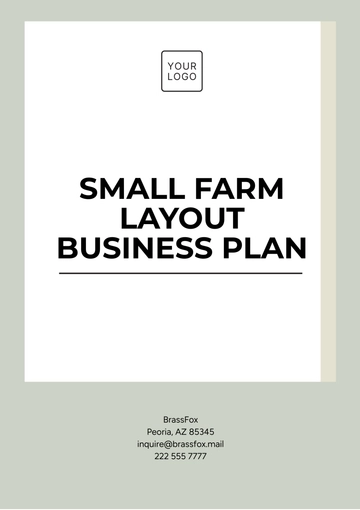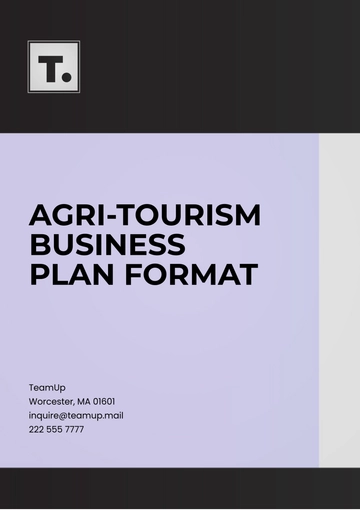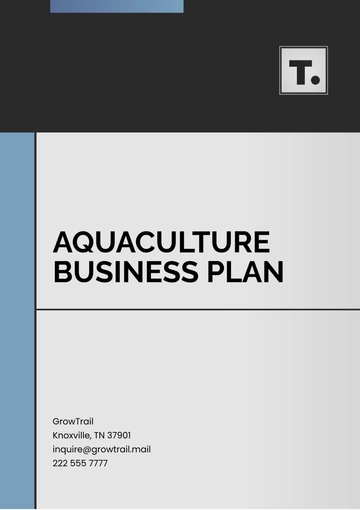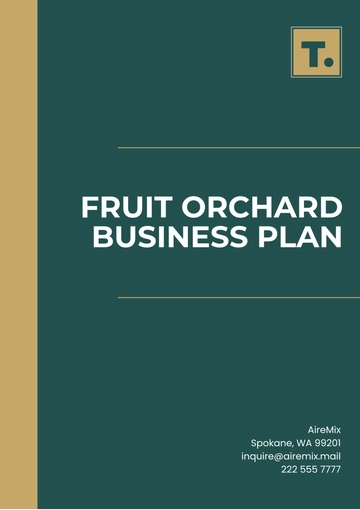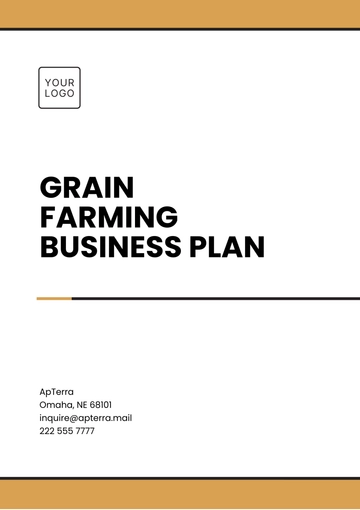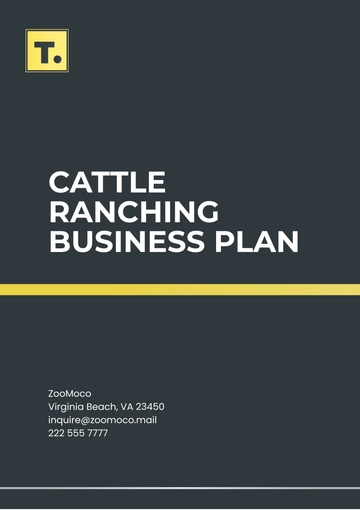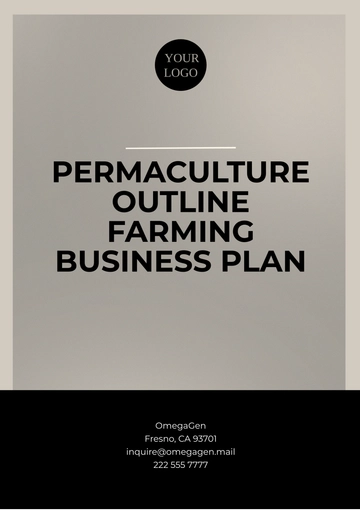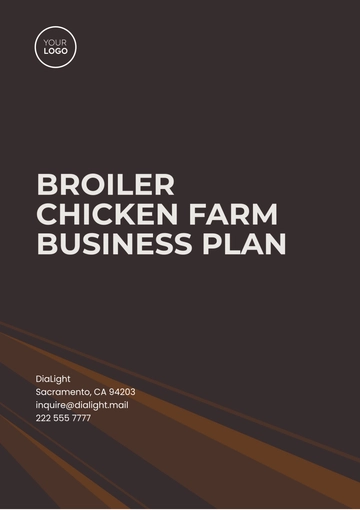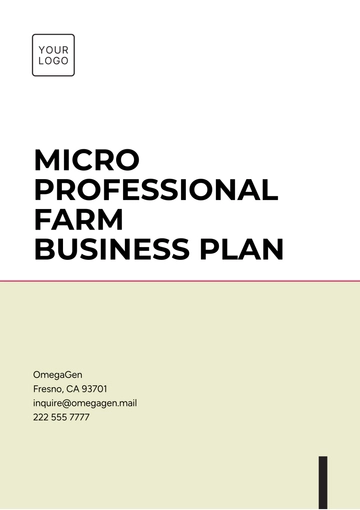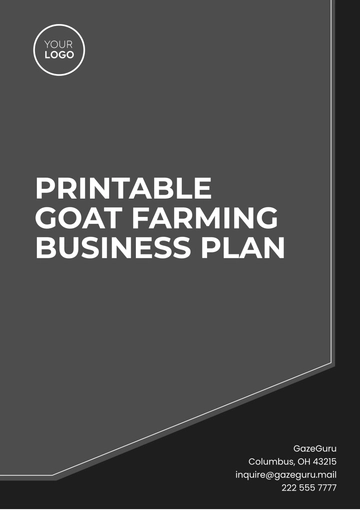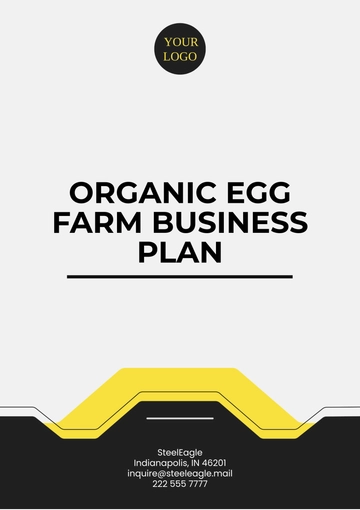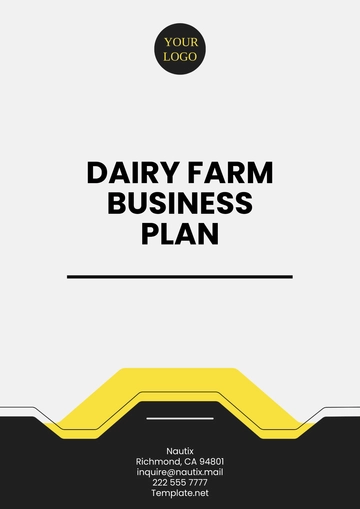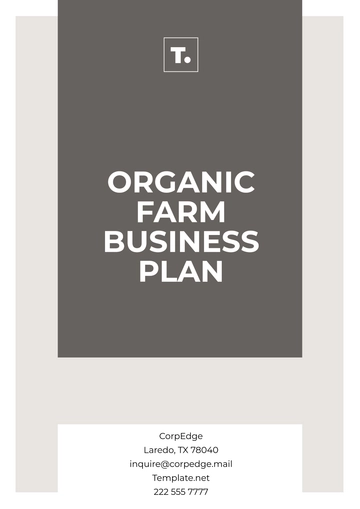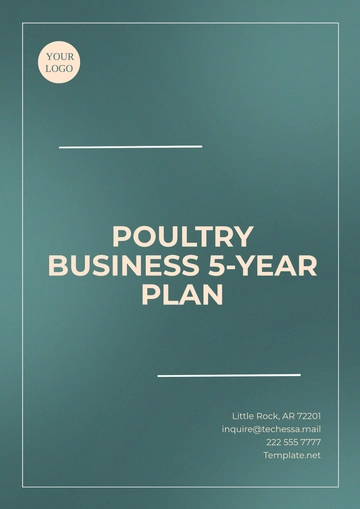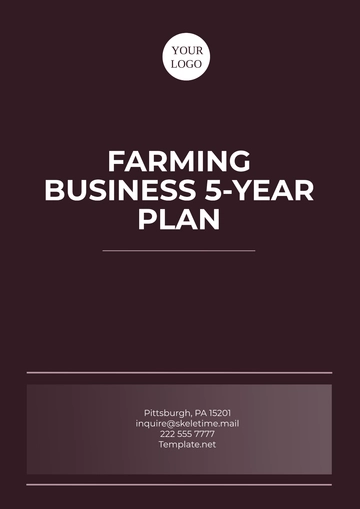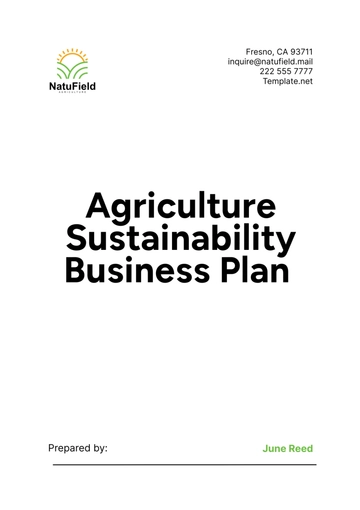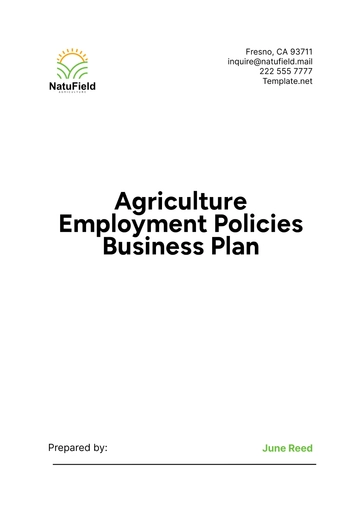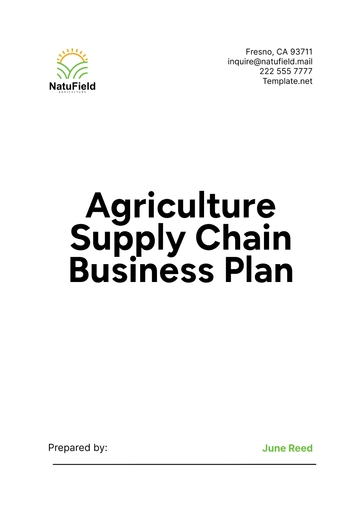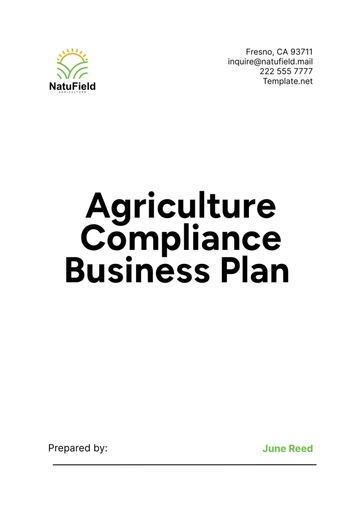Free Vegetable Sample Farm Business Plan
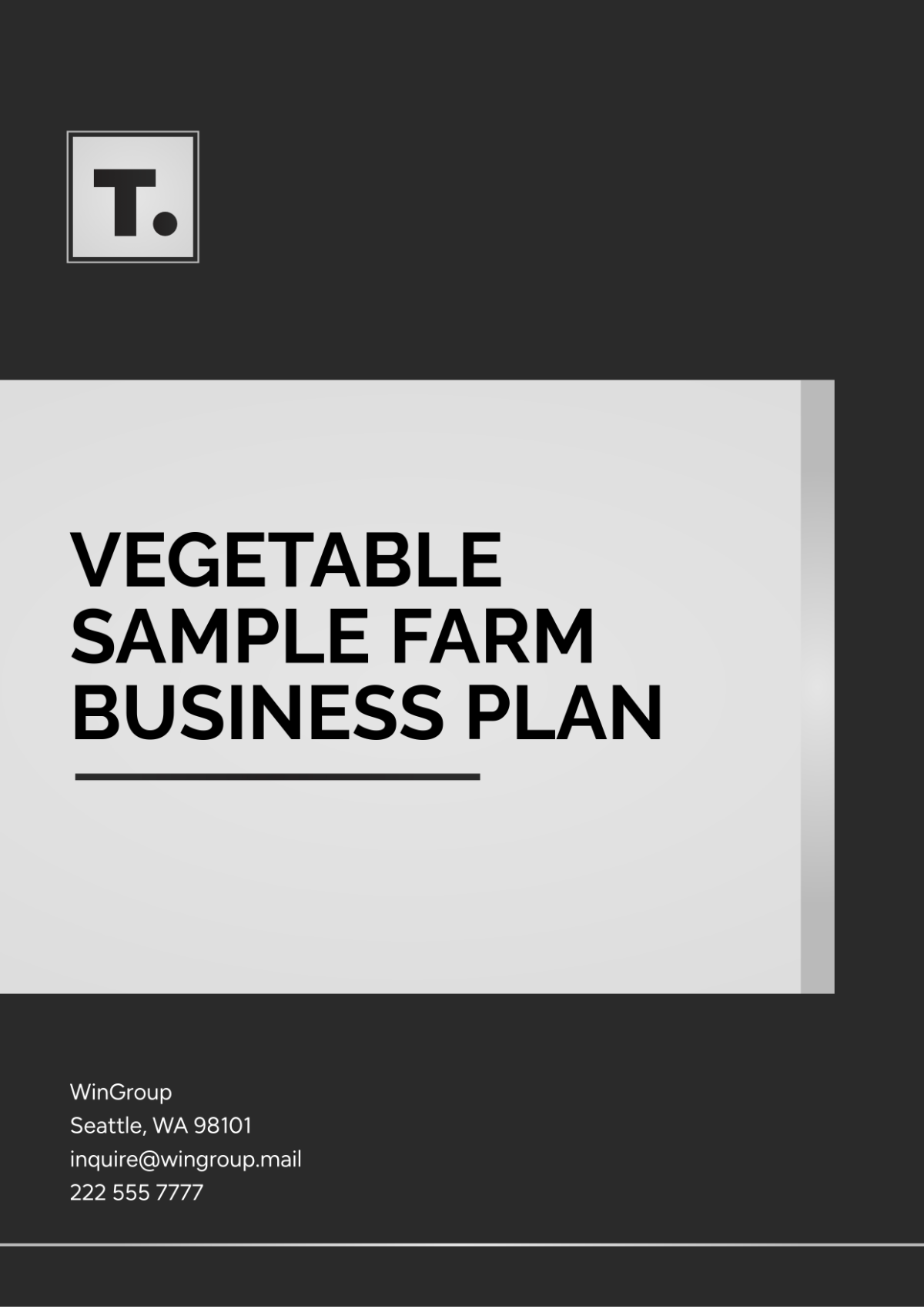
Prepared By: [YOUR NAME]
Date: [DATE]
I. Executive Summary
Business Name: [Your Company Name]
Location: [Insert Location]
Owner: [Insert Owner's Name]
Business Structure: Sole Proprietorship
A. Mission Statement:
[Your Company Name] aims to provide high-quality, organic vegetables to local markets, restaurants, and consumers. We prioritize sustainable farming practices that enhance soil health, conserve resources, and contribute to a healthier community.
B. Goals:
Establish [Your Company Name] as a trusted local provider of fresh, organic vegetables within two years.
Achieve annual revenue growth of 15% through efficient operations and diversified crop offerings.
Implement sustainable farming practices to earn organic certification within three years.
II. Business Description
[Your Company Name] will cultivate organic vegetables such as tomatoes, lettuce, cucumbers, peppers, and carrots on 10 acres of leased land. The farm will cater to the rising demand for local, organic produce by supplying to local farmers' markets, grocery stores, and farm-to-table restaurants. We focus on sustainable, eco-friendly practices to protect the environment while maximizing crop yield and quality.
A. Target Market:
Local farmers' markets
Health-conscious consumers
Organic food retailers
Farm-to-table restaurants
B. Competitive Advantage:
[Your Company Name] will focus on quality and freshness, ensuring our produce is harvested, packaged, and delivered within 24 hours. Additionally, our commitment to organic practices and minimal pesticide use will position us as a premium choice for health-conscious buyers.
III. Market Analysis
A. Industry Overview:
The organic vegetable farming industry has seen consistent growth due to increasing consumer interest in healthier and more sustainable food options. According to the Organic Trade Association, demand for organic produce has grown annually by 8-10%.
B. Target Market Demographics:
Age Group: Primarily 25-55 years old
Income Level: Middle to upper-middle class
Lifestyle: Health-conscious, environmentally aware
Buying Patterns: Prefers locally sourced, high-quality organic products
C. Competitor Analysis:
Our primary competitors are nearby organic farms and conventional vegetable farms. However, [Your Company Name]'s focus on high-quality organic produce and sustainable practices will differentiate it from these competitors.
IV. Product Line
A. Core Products:
[Your Company Name] will produce a variety of vegetables, including:
Tomatoes: Multiple varieties, including heirloom, cherry, and grape.
Lettuce: Romaine, butterhead, and mixed greens.
Cucumbers: Slicing cucumbers and pickling cucumbers.
Peppers: Bell peppers, hot peppers, and sweet peppers.
Carrots: Standard and specialty colors.
All produce will be grown using organic practices, without synthetic pesticides, herbicides, or fertilizers.
V. Marketing Plan
A. Branding and Positioning:
[Your Company Name] will market itself as a source of premium, locally grown, and organic vegetables. Our branding will emphasize sustainability, health benefits, and freshness.
B. Sales Strategy:
Farmers’ Markets: Weekly stalls at local farmers’ markets to reach a broad audience and build brand awareness.
Direct Sales: Partnerships with local restaurants and grocers that prioritize organic and local sourcing.
CSA (Community Supported Agriculture): Offering a subscription service for customers to receive weekly or biweekly produce boxes.
C. Pricing Strategy:
Pricing will be competitive with local organic produce providers but may vary based on seasonality and demand. Premium pricing will be applied to specialty and heirloom varieties.
D. Promotional Strategy:
Social Media Marketing: Use platforms like Instagram and Facebook to showcase daily farm life, seasonal produce availability, and recipes.
Website & E-Commerce: Develop a website with an online store for direct orders and subscriptions.
Community Engagement: Hosting farm tours, workshops, and local food events to build connections and educate the community on organic farming.
VI. Operations Plan
A. Location:
[Your Company Name] is located on a 10-acre plot with access to water for irrigation and proximity to major markets.
B. Growing Methods:
We use sustainable and organic methods, including crop rotation, cover cropping, and organic pest management. The company will also employ drip irrigation to conserve water and maintain soil fertility.
C. Equipment and Infrastructure Needs:
Tractors and essential tilling equipment
Irrigation systems and water storage tanks
A small greenhouse for seedlings and winter production
Packing and cold storage facilities for produce handling
D. Seasonal Labor:
The company will employ two full-time workers and hire additional seasonal labor during peak planting and harvesting periods.
VII. Management Plan
Owner/Manager: [Insert Owner's Name], an experienced farmer with a background in agriculture and sustainable farming practices, will oversee all farm operations, marketing, and sales.
A. Team Members:
Farm Supervisor: Responsible for day-to-day field operations.
Sales and Marketing Coordinator: Manages market sales, social media, and customer relations.
Seasonal Workers: Hired for planting, maintenance, and harvest.
B. Training and Development:
The farm will prioritize ongoing training on sustainable practices, soil health, and efficient harvest techniques.
VIII. Financial Plan
A. Startup Costs:
Land Lease: $10,000/year
Equipment Purchase: $25,000
Irrigation System: $8,000
Seed and Seedling Costs: $3,000
Greenhouse Construction: $5,000
Packing and Storage Facilities: $6,000
Total Startup Cost: $57,000
B. Revenue Projections (Year 1):
Farmers' Markets: $40,000
Direct Sales (Restaurants and Grocers): $25,000
CSA Subscriptions: $20,000
Total Projected Revenue: $85,000
C. Expenses (Year 1):
Labor Costs: $20,000
Fertilizer and Organic Pest Control: $5,000
Marketing and Packaging: $4,000
Utilities and Irrigation: $2,000
Total Expenses: $31,000
Net Profit:
Projected Net Profit for Year 1: $54,000
Funding Needs:
[Your Company Name] is seeking a $30,000 loan to cover startup costs and initial operating expenses.
IX. Appendices
Projected Cash Flow: Detailed monthly income and expenses projection.
SWOT Analysis: Outlines the farm’s strengths, weaknesses, opportunities, and threats.
Lease Agreement: Documentation of the land lease.
Organic Certification Roadmap: A timeline for achieving organic certification.
- 100% Customizable, free editor
- Access 1 Million+ Templates, photo’s & graphics
- Download or share as a template
- Click and replace photos, graphics, text, backgrounds
- Resize, crop, AI write & more
- Access advanced editor
You may also like
- One Page Business Plan
- Coffee Shop Business Plan
- Restaurant Business Plan
- Food Business Plan
- Real Estate Business Plan
- Executive Summary Business Plan
- Cover Page Business Plan
- Nonprofit Business Plan
- Daycare Business Plan
- Construction Business Plan
- Startup Business Plan
- Medical Business Plan
- Bakery Business Plan
- Service Plan
- Hotel Business Plan
- Catering Business Plan
- School Business Plan
- Healthcare Business Plan
- Transportation Plan
- Sports Plan
- Car Wash Business Plan
- Salon Business Plan
- Clothing Business Plan
- Farming Business Plan
- Boutique Plan
